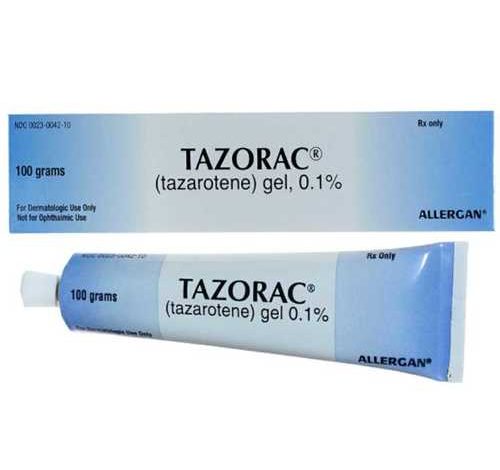Why Was Tazorac Withdrawn From The U.S. Market?

Tazorac contains the active ingredient tazarotene a highly effective, topical medication used to treat acne. The gel formulation was released in the United States in 1997, with the cream formulation made available in 2000. Multiple studies are available supporting the effective and safe use of topical tazarotene for each of its indications.
The cream and gel forms can also treat plaque psoriasis. Tazarotene. It belongs to the retinoid drug class. (A drug class is a group of medications that work in a similar way.) Retinoids are similar to vitamin A.
Tazorac cream is also available in a generic form called tazarotene. This generic is available in one strength: 0.1%. (Generics have the same active ingredient as brand-name drugs but typically cost less. Although generally well-tolerated, it can cause skin redness or peeling and might be expensive.
How is Tazorac cream used?
Tazorac is a topical medication, which means it’s applied to the affected area of your skin. Typically, you should apply it to your affected skin once a day, at nighttime. For treating acne,* the cream and the gel both come in one strength: 0.1%.
Why was Tazorac withdrawn from the U.S. market?
Tazorac was initially recalled by the manufacturer (Allergan) after 42,359 tubes of Tazorac in 30-g and 100-g sizes gel forms failed the 24-month stability test. The results showed that the quality of a specific batch of Tazorac fell below regulatory specifications for product concentration and content uniformity as a result the drug was withdrawn from the market. However, it continues to be available on a very limited basis for restricted use. Women who would like to be considered for this medication should contact their doctor for an evaluation.
On April 4, 2017, Taro Pharmaceuticals launched an AB-rated generic version of Tazorac 0.1% topical cream indicated for the topical treatment of patients with plaque psoriasis and acne vulgaris.
What are the side effects of Tazorac (tazarotene)?
Using Tazorac may cause side effects in some people. These side effects can be mild or serious. The lists below include some of the main side effects that have been reported in people using Tazorac for acne.* For information about other possible side effects of the drug, talk with your doctor or pharmacist.
You can also learn more from the in-depth Tazorac article or from the Tazorac patient brochure.
Note: After the Food and Drug Administration (FDA) approves a drug, it tracks and reviews the side effects of the medication. If you’d like to notify the FDA about a side effect you’ve had with Tazorac, visit MedWatch.
Like all drugs, Tazorac may cause mild side effects in some people.
Mild side effects that have been reported with Tazorac affect the skin. These include:
• peeling
• drying
• painful, burning, or stinging sensations
• redness or discoloration
• itching
• swelling where you applied the drug
• cracking
In many cases, mild side effects from the drug are temporary. Some side effects may be easy to manage, too. But if side effects last for a longer time, or if they bother you or become severe, talk with your doctor or pharmacist.
What are Tazorac’s serious side effects?
Tazorac may cause serious side effects in some people. But serious side effects aren’t common with this drug.
Serious side effects that have been reported with Tazorac include:
• severe skin irritation, such as blisters or severe peeling
• allergic skin reaction, such as hives
• increased risk of sunburn or sun sensitivity
Call your doctor right away if you have any serious side effects while using Tazorac. If the side effects seem life-threatening or if you think you’re having a medical emergency, call 911 or your local emergency number immediately.





